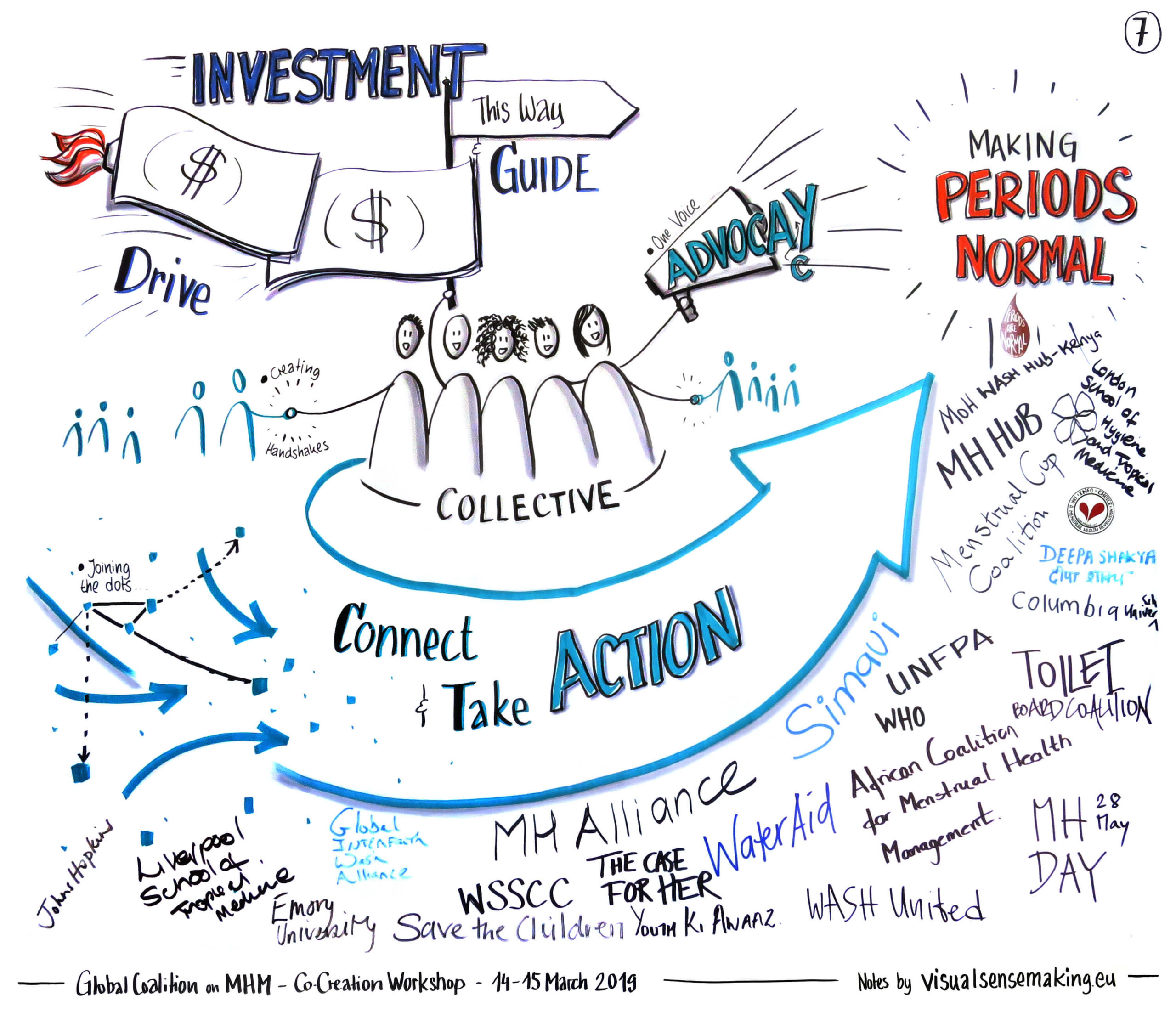The Global Menstrual Collective (GMC) strives to drive and guide investment in menstrual health and hygiene through evidence-based advocacy. We are not creating a new global fund, or directly channeling investments. We have come together to use our collective strength to increase and guide investments toward menstrual health and hygiene at all levels.
Members of the Collective will work together to build the evidence and advocate for investment, policy and programming across multiple sectors (WASH, health, education, gender, etc.) to increase access to comprehensive and accurate information, affordable and quality products and services, and establish positive social norms and practices around menstruation.
Existing alliances, coalitions, networks and groups engaged with menstrual health and hygiene at a country, and regional are invited to be members of the GMC. Together, we can work to amplify grassroots voices, shape global advocacy through the inclusion of country insights and good practices, and support the translation of global knowledge into country level actions.
The GMC will further develop its membership structure and reach out to potential members to build a diverse membership of individuals and representatives of organisations that identify with the Collective’s purpose and priorities as agreed by the Founding Members.
Advocacy for improved investment will include the voices and priorities of young people and marginalised groups.
We drive, guide, and promote investment in menstrual health and hygiene through evidence-based advocacy.
Members of the Collective work together on the following four priorities.
The initial activities of the Collective are delivered by Action Groups that were self-selected at the co-creation meeting. The Action Groups are self-governing. They provide updates to the Core Group and are supported by the Coordination Team. New Action Groups may be formed by members and proposed to the Core Group. Action Groups may exist for a specific activity or be continuous and may disband over time.
Action groups (also known as Task or Working Groups) include:
Not all groups may be active every year. For more information, please contact The Coordination Team.
Day-to-day activities to coordinate the Collective and support the Core Group and Action Groups are conducted by a Coordination Team who report to the Core Group. The Coordination Team is responsible for carrying out a programme of work in line with the stated aims of the Collective. The members of the Collective, particularly the Core Group and Action Groups are required to support the Coordination Team in responding to requests in a timely manner.
The key roles and responsibilities of the Coordination Team include:
Day-to-day activities to coordinate the Collective and support the Core Group and Action Groups are conducted by a Coordination Team who report to the Core Group. The Coordination Team is responsible for carrying out a programme of work in line with the stated aims of the Collective.
The key roles and responsibilities of the Coordination Team include:

In September 2018, WSSCC proposed to co-establish with WaterAid, a global coalition for menstrual health and hygiene (MHH). The aim was to connect interests, commitments and expertise to scale-up evidence-based MHH programming.
A group of stakeholders from across sectors engaged in menstrual health and hygiene met in Geneva in March 2019, convened by WSSCC, to explore the case for establishing a global coalition for menstrual health and hygiene. This was based on the premise that the strengths of diverse organizations could serve to amplify efforts and reduce duplication for mainstreaming MHH across health, education, gender, WASH and partnership SDGs.
The meeting concluded that there is a unanimous call for a global collective to connect Menstrual Health actors to strengthen our work. The lack of sufficient and evidence-based investment was identified as the biggest obstacle in accelerating progress and achieving results. The group concluded that focusing on evidence and advocacy to drive and guide improved investment in menstrual health and hygiene is a mutually beneficial starting point for a new Global Menstrual Collective. The illustration below was captured at the meeting to show what the group wanted to the Collective to be.
